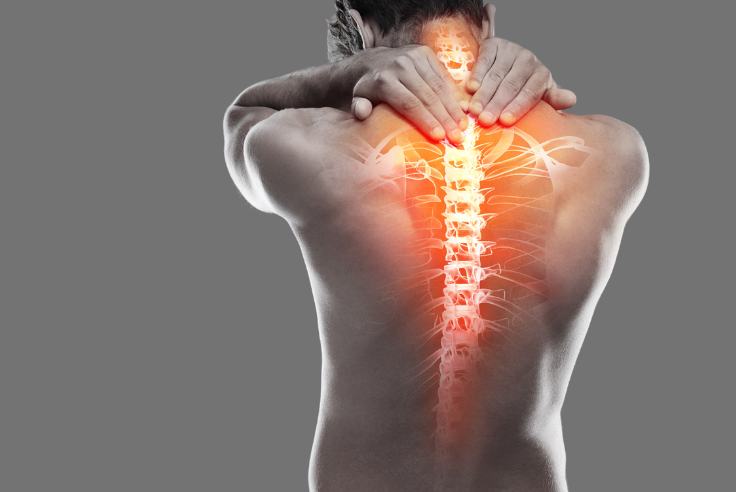Back pain is a prevalent health problem that affects millions of people worldwide. While physical factors such as injury, poor posture, or aging are often cited as the primary causes of back pain, mental health problems can also play a significant role.
It’s time to break free from the cycle of pain and start addressing the root of the problem. Seeking help for your mental health is not a sign of weakness, but a courageous step toward healing. It’s about the toll that it takes on your quality of life. It’s about feeling like you can do the things you love, like playing with your kids or going for a hike. It’s about feeling like you’re living up to your full potential because your body is not holding you back.
In this blog post, we will explore the connection between mental health problems and back pain and provide coping strategies for managing back pain effectively.
The Connection Between Back Pain and Mental Health
Understanding the mind-body connection in back pain is crucial for effectively managing back pain. By addressing psychological factors that contribute to back pain, individuals can experience significant relief from their symptoms.
Psychological factors such as stress, anxiety, depression, and trauma can cause or contribute to back pain. The mind-body connection in back pain refers to the relationship between emotional and physical factors that influence the onset, severity, and duration of back pain. Common mental health problems that can cause or worsen back pain include:
Stress and Back Pain
Stress is a common contributor to back pain, and can cause muscle tension, stiffness, and inflammation. Chronic stress can also lead to changes in the way that the brain processes pain signals, making it more likely that you will experience chronic pain. To manage emotional stress and back pain, it is important to identify the sources of stress in your life and take steps to reduce them. This might include practicing relaxation techniques such as deep breathing or yoga, getting regular exercise, or seeking support from a mental health professional.
Anxiety and Back Pain
Anxiety can also contribute to back pain, as it can cause muscle tension and hyperventilation, which can affect the way that the body responds to pain. Additionally, anxiety can cause you to focus more on your pain, which can make it seem more intense. To manage chronic low back pain and anxiety, it is important to seek treatment for your anxiety and to practice stress reduction techniques such as meditation or mindfulness.
Well, if you are still reading, you might have understood how anxiety and stress cause back pain. So, try to read more about the blog; Are your symptoms of low back pain a signal for anxiety? And just like every other problem, it has symptoms and preventive measures that you can take to avoid both back pain and anxiety.
Depression and Back Pain:
Depression is another mental health problem that can contribute to chronic back pain. Studies have shown that people with depression are more likely to experience back pain in severity than people without depression. Depression can also make it more difficult to manage pain, as it can cause fatigue, lack of motivation, and decreased activity levels. To manage depression-related back pain, it is important to seek treatment for depression, such as therapy or medication, and to practice self-care techniques such as exercise, social support, and healthy eating habits.
Coping Strategies for Managing Back Pain
Dealing with back pain can be challenging, but there are effective coping strategies that can help individuals manage their symptoms. Here are some techniques to consider:
The Secret To Healing Low Back Pain
Stress Reduction Techniques
Stress is a significant contributor to back pain, so it’s essential to incorporate stress reduction techniques into your daily routine. Some effective techniques include:
- Deep breathing exercises
- Progressive muscle relaxation
- Yoga and stretching
- Mindful meditation
Cognitive-Behavioral Therapy for Back Pain
Cognitive-behavioral therapy (CBT) is a type of talk therapy that focuses on changing negative thought patterns and behaviors that can contribute to back pain. CBT can help individuals develop coping strategies and improve their overall quality of life.
Mindfulness and Meditation for Back Pain
Mindfulness and meditation practices can help individuals manage back pain by reducing stress and promoting relaxation. These practices can also improve overall mental and emotional well-being.
Exercise and Physical Therapy for Back Pain
Exercise and physical therapy can help individuals manage back pain by strengthening the muscles and improving flexibility. A physical therapist can design a personalized exercise plan that addresses your specific needs.
Sleep Hygiene and Relaxation Techniques
Getting quality sleep is essential for managing back pain. Practicing good sleep hygiene, such as establishing a regular sleep schedule, avoiding caffeine and electronic devices before bedtime, and creating a comfortable sleep environment, can help individuals get the restful sleep they need.
To know more about coping strategies for managing back pain. Try to read the on and understand the secret to healing low back pain.
Seeking Professional Help for Back Pain and Mental Health Problems
While self-care techniques can be effective for managing back pain, it’s essential to seek professional help if symptoms persist or worsen. A back pain specialist can help diagnose the underlying cause of back pain and provide appropriate treatment options. Treatment options may include medication, physical therapy, or talk therapy. Book private coaching with Jacqueline Kane an experienced therapist who can help you with back pain and mental health problems. She is a certified expert therapist who can help you to understand deeply body pain, anxiety, stress, trauma, etc through a holistic mental and physical approach.
Conclusion
If you are someone who has been struggling with back problems, it’s important to remember that the root cause may not always be physical. Mental health problems can often manifest as physical pain in the body, and addressing these underlying issues can be key to finding long-term relief.
It’s time to prioritize your mental health and start healing from the inside out. You deserve to live a life free from the burden of back pain, and with the right support and self-care, you can get there. Just join the happy low-back session. Ignore the minor back stiffness and discomfort till it starts to interfere to the point we can’t enjoy life. So, heal the root cause of low back pain under a happy low back. Be happy and be healthy!
Rather than simply masking the pain with medication or relying solely on physical therapy, taking a holistic healing approach that addresses both the physical and mental aspects of back problems can be incredibly beneficial. By recognizing the connection between mental health and back problems, and taking a comprehensive approach to healing, you can not only alleviate your symptoms but also improve your overall well-being. Remember, your mind and body are deeply interconnected, and by addressing both aspects of your health, you can truly thrive.





